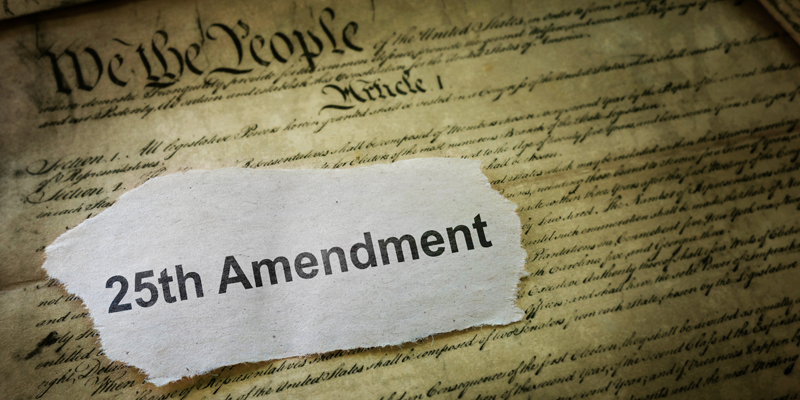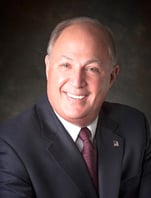What does the 25th Amendment mean by "Acting Cabinet Officers"

There is much conversation surrounding the 25th Amendment and what might happen if members of Congress were to invoke the amendment. First, the Constitution requires that cabinet officers must be confirmed by the Senate. That is, the Senate has the right to “Advise and Consent” to the nominee assuming all of the rights, privileges and obligations of the office. In the 25th Amendment cabinet officers are referred to as the "principal officers of the executive departments.”
Here is the question:
Does an “acting cabinet officer” have the full powers of the office he or she holds, including the power to vote on a declaration of incompetency and removal of the President under Section 4 of the 25th Amendment? Section 4 of the amendment addresses the case of an incapacitated president who is unable or unwilling to execute the voluntary declaration of incapacity contemplated in Section 3. It has never been invoked. It allows the vice president, together with a "majority of either the principal officers of the executive departments or of such other body as Congress may by law provide," to declare the president " unable to discharge the powers and duties of his office" in a written declaration.
Section 4 of the amendment addresses the case of an incapacitated president who is unable or unwilling to execute the voluntary declaration of incapacity contemplated in Section 3. It has never been invoked. It allows the vice president, together with a "majority of either the principal officers of the executive departments or of such other body as Congress may by law provide," to declare the president " unable to discharge the powers and duties of his office" in a written declaration.
The transfer of authority to the vice president is immediate, and the vice president becomes acting president – not president – while the president remains in office, albeit divested of all authority.
The "principal officers of the executive departments" are the 15 Cabinet members named in the U.S. Code at 5 U.S.C 101:
- Secretary of State
- Secretary of the Treasury
- Secretary of Defense – (acting)
- Attorney General
- Secretary of the Interior
- Secretary of Agriculture
- Secretary of Commerce
- Secretary of Labor (acting)
- Secretary of Health and Human Services
- Secretary of Housing and Urban Development
- Secretary of Transportation
- Secretary of Energy – (soon to be acting)
- Secretary of Education
- Secretary of Veterans Affairs
- Secretary of Homeland Security – (acting)
(Plus added by Executive Order): Administrator of the Small Business Administration (acting) and Director of National Intelligence (acting)
If there were an attempt to invoke the amendment, the President may argue that the amendment requires a majority of the principal officers of the executive departments (plus the Vice-President) to concur in the “temporary removal,” pending action by Congress before invocation of the amendment taking place, meaning all the departments. This would mean that a number of departments would not be represented because their executive officers are acting and unconfirmed, but are still counted toward the majority, leaving less bias in any effort to defeat attempts to invoke the amendment.
If some form of invocation failed to obtain a majority of all executive departments, but a majority of the confirmed principal officers, the President may argue that the invocation is unconstitutional and thus ineffective, bringing about a constitutional crisis.
Cooley Law School Professor and former Miami-Dade County Judge Jeffrey Swartz provides a legal analysis on the use of the 25th Amendment and the power of “acting cabinet officers.” To schedule interviews with Professor Swartz, please contact lecceadone@seyferthpr.com, or 616-776-3511.

